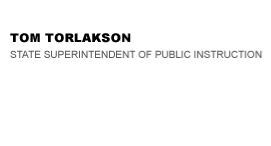Williams Case Guidance Charters Letter


Official Letter
Official Letter
Dear Select Charter School Administrators and Authorizers:
OPPORTUNITY TO PARTICIPATE IN THE WILLIAMS SETTLEMENT
CAREFUL CONSIDERATION RECOMMENDED
In August 2004, legislation was enacted to implement a settlement agreement in the case of Eliezer Williams, et al. v. State of California, et al. (Williams), a class action suit pertaining to instructional materials, safe and decent school facilities, and qualified teachers. As a key part of the Williams settlement, some specific funding was appropriated to help many of the affected public schools address their deficiencies, as well as to conduct monitoring activities. All non-charter schools in deciles 1 through 3 on the 2003 base API were automatically subject to the Williams settlement provisions, including increased monitoring. Importantly, however, charter schools were given the option of participating. Only a very few charter schools volunteered to participate in the Williams settlement.
Pursuant to California Education Code (EC) Section 1240(c)(2)(F), commencing with the 2010–11 fiscal year and every third year thereafter, the Superintendent shall create a list of schools in deciles 1 through 3. The new list of schools has been generated using the 2012 base API and appears on the California Department of Education (CDE) Web site at http://www.cde.ca.gov/eo/ce/wc/wmsschools.asp [Note: the preceding link is no longer valid.].
As was the case in 2010, charter schools again have the ability to “opt in” to participation in the Williams settlement. However, we strongly recommend careful consideration before deciding to opt in. If a charter school opts in, the school becomes bound by all the Education Code requirements that are the foundation of the Williams settlement for a three-year period. The Williams settlement requirements include:
- Purchase and make available for every student instructional materials in the core subject areas of English-language arts, mathematics, history-social science, and science.
- Undertake and report on a thorough facilities review.
- Annually produce a School Accountability Report Card (SARC) that specifically addresses the students’ access to state-adopted instructional materials and the condition of the school’s facilities.
Allow the county superintendent of schools to audit within specified timeframes the adequacy and sufficiency of instructional materials, the certification and assignment of teachers, teacher vacancies, and the maintenance of facilities.
In the event that your charter school wishes to participate in the Williams settlement, an “Opt in” Form is attached. Only by returning the form will your school participate. By taking no action, your school will not participate in the Williams settlement. Because of the three-year cycle concept incorporated in EC Section 1240(c)(2)(F), a charter school that “opted in” to the Williams settlement in 2010 is no longer considered to be subject to Williams requirements (beginning in 2013–14), unless the school is still in deciles 1 through 3 and executes a new “Opt in” Form.
If your charter school is considering participation in the Williams settlement, the CDE strongly encourages you to review the following to gain a complete understanding of the requirements of participation.
- Is a charter public school required to participate in the Williams settlement? No, charter schools that are listed on the Web site as being ranked in deciles 1 through 3 on the 2012 base API may opt in if they do so by Friday, August 2, 2013. However, as noted above, participation is an “all or nothing” proposition for a three-year period, and the CDE recommends careful consideration before deciding to opt in.
- How do we know if a charter school is eligible to participate? Eligible charter schools on the list, ranked in deciles 1 through 3, can be found on the CDE Williams settlement Web site at http://www.cde.ca.gov/eo/ce/wc/index.asp.
- Do we receive additional funding if we “opt in”? At this time, there are no funds available to schools in deciles 1 through 3.
- Is there a difference between direct funded and locally funded charter schools in deciding whether to participate? No, it is the decision of the charter school to participate, regardless of whether the school is direct funded or locally funded.
- How does a charter school opt in? Charter schools choosing to participate must complete and submit Attachment 1 to the CDE by Friday, August 2, 2013.
- Does a charter school have to submit anything to opt "out"? No, only to opt "in”. If a charter school (even a charter school that “opted in” in 2010) does nothing, it will not be included in the Williams settlement for this three-year cycle.
If you have general Williams-related questions regarding charter schools, please contact Sandi Ridge, Education Programs Consultant, Charter Schools Division, by phone at 916-322-1646 or by e-mail at sridge@cde.ca.gov. If you have Williams-related questions regarding school facilities, please contact Lisa Constancio, School Facilities Planning Division, by phone at 916-445-4889 or by e-mail at LConstancio@cde.ca.gov [Note: the preceding contact information is no longer valid.]. If you have Williams-related questions regarding School Accountability Report Cards, please contact Stephanie Woo, Analysis, Measurement & Accountability Reporting Division, by phone at 916-323-3071 or by e-mail at SWoo@cde.ca.gov [Note: the preceding contact information is no longer valid.]. If you have Williams-related questions regarding instructional materials, please contact David Almquist, Standards, Curriculum Frameworks and Instructional Resources Division, by phone at 916-319-0444 or by e-mail at DAlmquis@cde.ca.gov.
Julie Russell, Director
Charter Schools Division
JR:sr
Attachment
